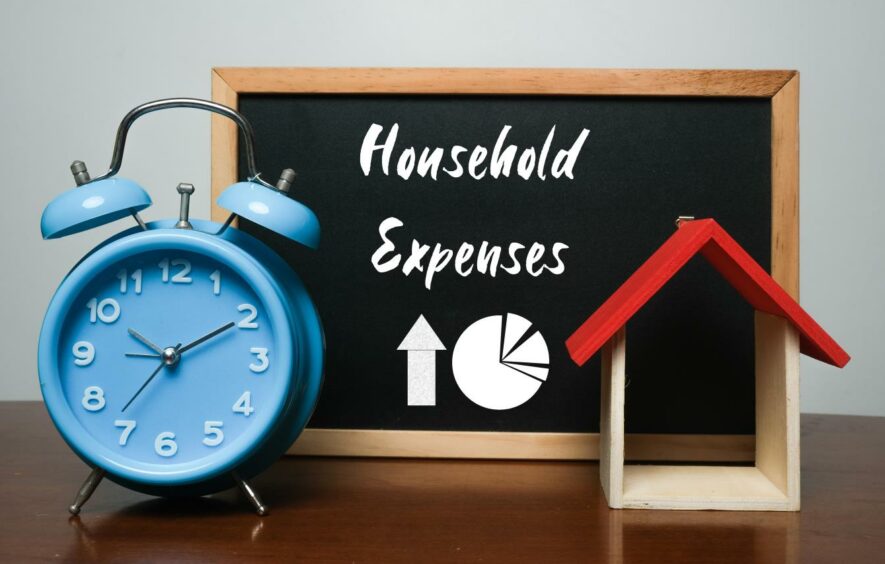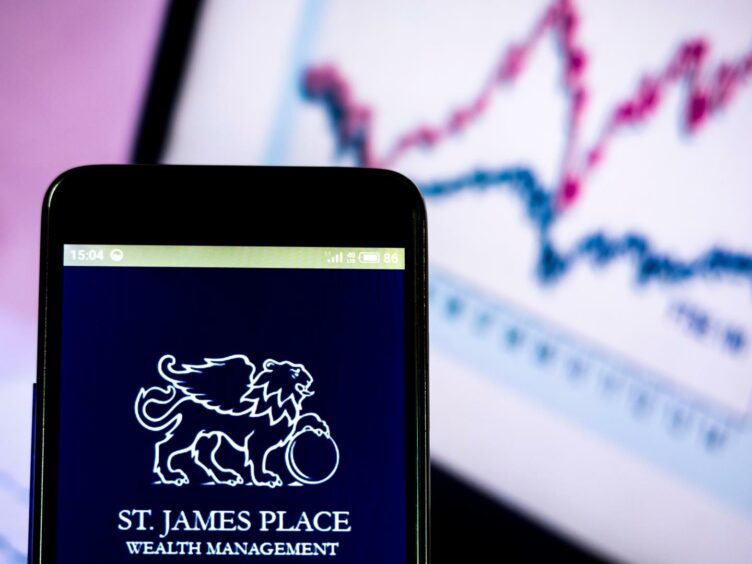A health check of UK household finances has revealed not one but two north-south divides, highlighting the challenge of “levelling up” Britain.
According to St James’s Place (SJP), Scots have enjoyed the biggest wealth growth in Britain over the past 10 years.
Scottish households are now 66% wealthier, on average, putting locations like London (19%) and north-east England (18%) in the shade.
Checking the pulse
But an overall financial health index from wealth manager SJP in partnership with the Centre of Economics and Business Research reserves its highest rankings for households in the south of England.
Scotland is ranked fifth out of UK regions, with an index reading of 53.2 out of a possible 100.
Elsewhere, the financial health scores show a clear divide. Those for southern parts of England are much higher – three to four times – the north-east England reading of 19.1.
South-east England tops the UK-wide list on 75.7, with the English south-west, east and London on 68.6% 68 and 58 respectively.
Northern Ireland (21) and Wales (32.1) are second and third last respectively.
More than half (51%) of people questioned for the survey said they were not financially comfortable and 78% did not consider themselves wealthy.
Fewer than two in five (38%) have a financial plan in place for the future.
With the cost of living rising and greater strains on our money, it’s more important than ever to engage with finances and to have a plan in place.”
Alex Loydon, St Jame’s Place.
SJP said the disparity between different parts of Britain underlined the scale of efforts needed for “levelling up” financial wealth and wellbeing across the UK.
“Financial health captures much more than just our total wealth,” Alex Loydon, director of partner engagement and consultancy, SJP, said, adding: “It assesses the full picture of how comfortable and resilient we feel to handle pressures on our finances.
“The UK Financial Health Index shows that not only is wealth unevenly spread around the UK, but in some areas, there is a clear mismatch between the reality of people’s wealth and their own perception of being wealthy.
“People across all regions are experiencing poor financial health in one way or another.
‘Complex picture’
Ms Loydon continued: “Clearly, this is a complex picture and there are many factors that are impacting financial wellbeing across the country.
“Some of these are well outside our individual control, while others require collective action.
“With the cost of living rising and greater strains on our money, it’s more important than ever to engage with finances and to have a plan in place.”
The index scores showing how wealth is distributed across the UK and where financial health is strongest are based on three distinct pillars – wealth, wealth drivers and perceived financial wellbeing.
Each of these consists of several indicators which measure a certain aspect of an individual’s financial position.
When it comes to perceived wellbeing, the south-east of England and London performed relatively poorly, despite being two of the highest-ranking regions for wealth and wealth drivers.
Average household wealth in London is about £1 million, substantially more than any other region and the UK average of £384,208, yet the capital is ranked fourth lowest for perceived wellbeing.
Scotland is ranked the highest in terms of perceived wellbeing despite mid-table positions in the wealth and wealth driver categories – sixth and fifth respectively.
Meanwhile, those who said they felt financially vulnerable believed it would take a doubling of their current wealth to make them financially resilient.
Aberdeen charity reveals top 10 tips for Christmas on a budget
Will Covid damage young people’s retirement prospects?
Those who said they did not feel wealthy expected it to take 10 times their current financial position change this.
More than one-third (34%) reported rising property prices were the main reason behind their increase in wealth, with pay rises cited by 35% of people questioned.
Nearly half (44%) said the cost of living was the key impediment behind wealth growth.



